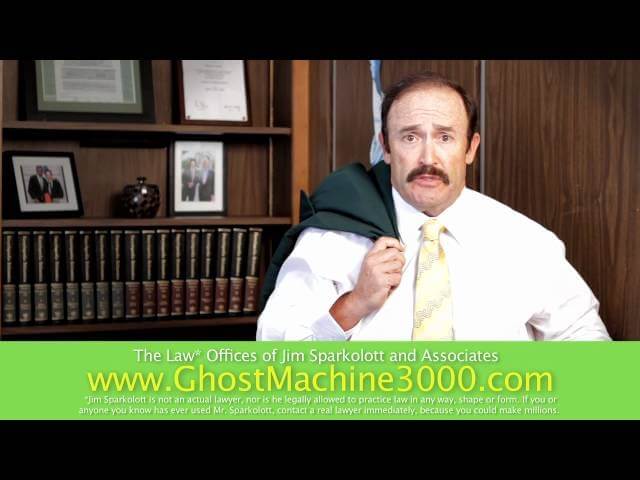Matt Osterman, writer and director of Ghost From The Machine

For most people, making a film is less than glamorous, despite what the movies might say about it. Very few filmmakers have the glitz and glam lifestyle associated with the Hollywood stereotype, and there are hordes of real people making small-scale films and doing so with very little budget, right here in the Twin Cities. Many of these films are seldom seen and often succumb to a mostly unwatched death, so it’s an especially exciting tale when that familiar plot isn’t followed. One example: Matt Osterman’s Ghost From The Machine, a supernatural thriller produced with a minuscule budget and the hope that maybe some big distributors would pick it up and help promote it nationally or beyond, saw Universal Pictures buy the rights to the film in August with the intention of remaking it with a big budget and famous faces. We recently chatted with Osterman, writer and director of the original movie, about giving away his baby to Hollywood.
The A.V. Club: Why don’t you say a bit about your background as a filmmaker.
Matt Osterman: This movie was my first feature as a director. I’ve done a bunch of shorts in the past—short films are the next best thing you can film on your own. After working a random smattering of jobs, I produced a feature documentary for John Stewart from The Daily Show. We followed Vikings fans around for an entire year, and that ended up being aired on Spike TV. After that, I jumped directly into features.
AVC: Why did John Stewart want to make a film about the Vikings?
MO: The concept didn’t involve Vikings fans, he just really wanted to take a look at hardcore football fans, attempting to peel back the layers of the proverbial onion and see who these people are. You watch a game on Sunday, and you see somebody in the front row with their face painted, often times drunk, and they’re very fanatical. So, he was interested in just doing a study of who these people are, what they do. So, we hung out with a bunch of fans for a year. Minnesota worked out well because it’s such a tortured fan base, so there’s drama built-in already, and it’s just an interesting locale. It’s not New York or L.A. It’s a bit more pastoral.
AVC: You recently sold the rights to your film, Ghost From The Machine, to Universal. How did that come about?
MO: We made this film locally, and then we premièred at a festival in Montreal last summer. And from there, we did a nice, long international festival run. We sold distribution rights to a company out in New York, called Screen Media, and then we sold the international distribution rights to a company in L.A. So that’s traditional film distribution, where they put you on iTunes and in rental stores, On Demand, that kind of thing. So we got this standard distribution deal, which is pretty rare for a low-budget indie film like ours. That’s all we were hoping for, and we weren’t expecting this Universal thing to happen. But then Universal expressed interest in the rights to remake it. We get to keep our original film and continue to distribute it, but they see some value in the concept and they want to put more money into it and put some stars in it, and they think it has a lot of potential.
AVC: Where are they with these plans?
MO: It’s just beginning. It’s going to have to be re-written for a larger budget. And I won’t be that guy—and I wouldn’t want to be that guy; it’d be hard making one movie for 10 years. But they have to write this script before they can greenlight it.
